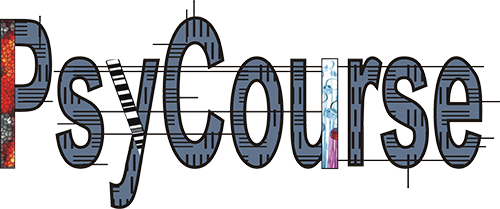2020-01-15
024_ Preparatory work for the MulioBio project
Research Question and Aims
Despite many years of research and many promising candidates there are no validated and reliable biomarkers (BM) in clinical use for schizophrenia or other major psychoses (MP). In the MulioBio project, we postulate that phenotype definition is the reason BM couldn't be discovered. To resolve this, we intent to classify patients of the longitudinal PsyCourse cohort, that show the same behavioral profiles over time, into three to four transdiagnostic groups. Then, the PsyCourse patients will be re-contacted, PBMCs will be obtained from them under the auspices of the MulioBio study, and a multi-level BM screening of molecular phenotypes will be performed. Eventually, we plan to use an integrative approach of longitudinal patient information, cellular and molecular phenotypes with serum protein to define robust BM which will later be validated in an independent validation cohort.
To find phenotypic groups within the PsyCourse cohort, we will use the RShiny app PhenEndo. This toolbox, developed in cooperation with The Helmholtz Center of Computational Biology, is able to divide the PsyCourse individuals into clusters that show different trajectories over time.
Here, we plan to use PsyCourse data as an exercise to identify challenges and pitfalls when using PhenoEndo, which is still acitvely developed. We will also explore to which extend this approach can benefit from the addition of genomic data.
Analytic Plan
For this purpose, we will use the phenotype data that were also used to demonstrate a use case for PhenEndo (PsyCourse proposal 021_Providing a use case of longitudinal data for the manuscript "Phenendo: a tool for clustering of cross-sectional and longitudinal phenotye data", plus some additional variables). Only participants with a DSM-IV diagnosis of schizophrenia and data at all four study visits will be included (n=76). We will also use genotype data of the PsyCourse cohort to prepare for the main research question stated above.
Resources needed
curr_paid_empl
partner
gaf
idsc_itm1
idsc_itm10
idsc_itm15
idsc_itm16
idsc_itm17
idsc_itm18
idsc_itm19
idsc_itm2
idsc_itm20
idsc_itm21
idsc_itm22
idsc_itm23
idsc_itm24
idsc_itm25
idsc_itm26
idsc_itm27
idsc_itm28
idsc_itm29
idsc_itm3
idsc_itm30
idsc_itm4
idsc_itm5
idsc_itm6
idsc_itm7
idsc_itm8
idsc_itm9
idsc_11_12
idsc_13_14
panss_n1
panss_n2
panss_n3
panss_n4
panss_n5
panss_n6
panss_n7
bdi2_itm1
bdi2_itm10
bdi2_itm11
bdi2_itm12
bdi2_itm13
bdi2_itm14
bdi2_itm15
bdi2_itm16
bdi2_itm17
bdi2_itm18
bdi2_itm19
bdi2_itm2
bdi2_itm20
bdi2_itm21
bdi2_itm3
bdi2_itm4
bdi2_itm5
bdi2_itm6
bdi2_itm7
bdi2_itm8
bdi2_itm9
v1_id
visit
sex
ageBL
idsc_sum
panss_sum_neg
bdi2_sum
v1_dur_illness
v1_evr_ill_drg
Biological data: Imputed SNP genotype data of all available PsyCourse participants
